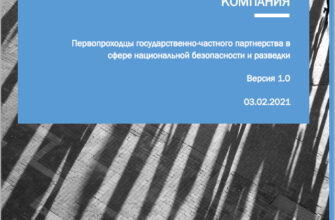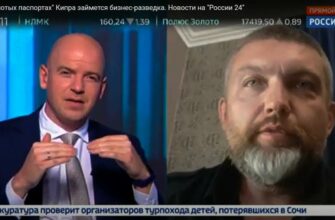На сайте ЦРУ опубликована интересная статья (автор: Frank Watanabe). Принципы описанные в данной статье также применимы и к конкурентной разведке, поэтому рекомендую ее для прочтения всем специалистам! Далее привожу саму статью:
Fifteen Axioms for Intelligence Analysts
How To Succeed in the DI
Frank Watanabe
———————————————————————————
Recently, the Directorate of Intelligence (DI) has seen a spate of «new thinking» on its mission and on how it conducts that mission. Notable examples are the mandatory Tradecraft 2000 course and the publication of a paper entitled «Intelligence Changes in Analytic Tradecraft in CIA’s Directorate of Intelligence.» (1) As well-meaning and insightful as all this new thinking is, however, most is coming from senior DI managers, not from the analysts and other junior and midlevel officers who carry out the DI’s mission on a daily basis. In addition, some frontline DI officers—myself included—would take exception to the idea that the concepts put forth in Tradecraft 2000 truly represent new thinking. Much of it is merely a return to the basics of DI tradecraft that many of us in the Directorate seem to have forgotten.
Before leaving the DI on a rotational assignment, I endeavored to set down some of the axioms by which I have tried to live in my career. Initially, this exercise was begun to provide some practical advice to a new analyst joining my branch, but I eventually decided that these axioms might be of interest to officers throughout the DI. Although I have not rigidly adhered to them, they have served me well as general guides to professional conduct as a DI analyst. To experienced analysts, many of the principles will sound like truisms and, if that is the case, all the better. I just tried to codify general rules that guide what we in the DI do on a daily basis, and I would not presume to invent new tradecraft. But the new DI analyst, and more than a few old hands, would be well served by remembering these 15 principles in their everyday conduct, as I suspect that many will never be adopted officially.
Believe in your own professional judgments. Always be willing to listen to alternative conclusions or other points of view, but stand your ground if you really believe the intelligence supports a certain conclusion. Just because someone is your boss, is a higher grade, or has been around longer than you does not mean he or she knows more about your account than you do. You are the one who reads the traffic every day and who studies the issue.
Be aggressive, and do not fear being wrong. Anyone can restate what a raw intelligence report said, but in the DI we are supposed to be in the analysis business. As a DI officer, it is your job to go beyond the facts—in a rigorous, logical way—to understand what they mean. Do not be afraid to predict the future, or of being wrong. If you are right most of the time, you are doing pretty well. But if you are always right, then you are not doing your job.
It is better to be mistaken than to be wrong. One of the hardest things to do is to admit that your original assessment was mistaken. Too many people in the DI refuse to admit a mistake or an incorrect assessment and to change their assessments in light of new facts. But it is always better to admit you were wrong and to change a position when the facts warrant it than to stand by an incorrect assessment in the face of new facts. For example, earlier in my career, I was responsible for evaluating foreign export control systems to determine if they could protect sensitive Western technology. I was convinced that one of the countries I was studying was not able to protect sensitive technologies because of weaknesses in its control system, and I had written my intelligence assessments accordingly. Later, I had the opportunity to go to the country and see firsthand the system in operation. I was surprised to find that it was far more secure than I had believed, and I reversed my earlier assessments of its unreliability. Had I stuck to my original analysis, I would have been wrong.
Avoid mirror imaging at all costs. Mirror imaging—projecting your thought process or value system onto someone else—is one of the greatest threats to objective intelligence analysis. Not everyone is alike, and cultural, ethnic, religious, and political differences do matter. Just because something seems like the logical conclusion or course of action to you does not mean that the person or group you are analyzing will see it that way, particularly when differences in values and thought processes come into play. For instance, in the days before Iraq invaded Kuwait, the conventional wisdom was that Iraq would not invade, and that its hostile military actions were intended to intimidate Kuwait and Saudi Arabia into abiding by OPEC production quotas, thereby driving up the price of oil. The argument made perfectly good sense to Westerners, while invasion seemed illogical. But Saddam Hussein did not view the situation precisely as many analysts did.
Intelligence is of no value if it is not disseminated. It does not matter how much you know about a subject unless you clearly and effectively communicate the intelligence and your assessment to the consumer in a timely manner. We cannot support policymakers if we do not provide them with the intelligence. The US Navy had SIGINT providing advance warning of Japanese plans to bomb Pearl Harbor, but it did not analyze the information and disseminate it to the proper officials in time to prevent the attack.
Coordination is necessary, but do not settle for the least common denominator. We coordinate to ensure a corporate product and to bring the substantive expertise of others to bear. But, as one commentator once said, «Consensus is valuable, indeed essential, for moving the ship of state in a reasonable, orderly way. But widespread agreement and shared assumptions do not mean the agreements and assumptions are correct.» True analytic differences of opinion do occur. If you think you are right, and the coordinator disagrees, let the assessment reflect that difference of opinion and use a footnote if necessary. But never water down your assessment to a lowest common denominator just to obtain coordination.
When everyone agrees on an issue, something probably is wrong. It is rare when everyone in the Intelligence Community agrees on an analytic judgment. When these instances do occur, it is time to worry. Maybe it is because all of you are all right. But it may also be because you have fallen into a group-think mentality that does not allow you to see the other side. As an example, following the collapse of the Soviet Union, there was an almost unanimous belief that large numbers of Russian ballistic missile specialists would flood into the Third World and aid missile programs in other states (the so-called brain drain). The unanimity on this issue obstructed a thoughtful debate on the probability of such an exodus occurring and of alternative scenarios. As it turned out, there was no mass departure of Russian missile specialists, but Russian expertise was supplied to other states in ways that had been ignored due to the overemphasis on the brain drain. Differences of opinion are healthy because they force both sides to make their case on the field of intellectual battle.
The consumer does not care how much you know, just tell him what is important. Too many analysts strive to demonstrate their depth of knowledge and sophistication in their products by loading them with facts and details. But the consumer of intelligence does not care how much you know. He wants you to tell him only those things that are really important for him to know and what they mean. Superfluous details merely serve to obscure the important facts.
Form is never more important than substance. In the DI, we spend a lot of time worrying about the form in which our analysis is disseminated. But the consumer wants to know what the intelligence says, and he wants to know it when he needs to know it. Most consumers do not care how attractive a report looks or whether the format is correct. I have lost count of the number of times consumers have told me they do not care if an assessment has a CIA seal on it, if it is in the proper format, or even if it has draft stamped all over it; they just want the assessment in their hands as soon as possible, at least in time to help make a decision. This is not an excuse for sloppy or shoddy work, or for bypassing the review process, but do not let concerns over the form of your product get in the way of the substance of what you are trying to communicate and its timeliness.
Aggressively pursue collection of information you need. In the Intelligence Community, we have the unique ability to bring substantial collection resources to bear in order to collect information on important issues. But too many analysts in the DI sit in front of their screens and passively wait for the information they need for their jobs to come to them. If you are examining a problem and there is no intelligence available, or the available intelligence is insufficient, be aggressive in pursuing collection and in energizing collectors. During my career, I played a central role in reorienting collection toward new, rest-of-world targets to meet new consumer requirements following the collapse of the Soviet Union. My investment in time and energy did not expand my production file, but it did result in valuable new intelligence that allowed me and others in the Community to answer the customers’ questions. As an analyst, you have the advantage of knowing both what the consumer needs to know (sometimes better than the consumer knows himself) and which collectors can obtain the needed intelligence. If you are not frequently tasking collectors and giving them feedback on their reporting, you are failing to do an important part of your job.
Do not take the editing process too seriously. If editorial changes do not alter the meaning of what you are trying to say, accept them graciously. When the changes do alter the meaning, however, do not be afraid to speak up and contest the changes.
Know your Community counterparts and talk to them frequently. The CIA does not have a monopoly on either the truth or on all information. So get to know your counterparts in the various Intelligence Community agencies-both analysts and collectors-and talk to them frequently, finding out what they are doing and informing them of what you are doing. «Frequently» means several times a month, not just when you need something. If you cannot recognize their voices over the phone, then you probably are not talking to them often enough. My close ties to counterparts at NSA and DIA-and the resulting collaboration-have repeatedly resulted in better collection, better products, less duplication, and less conflict over coordination.
Never let your career take precedence over your job. As a professional intelligence officer, your responsibility is to present the best intelligence analysis possible, given the available information. Sometimes this requires taking positions or doing things that may make you unpopular with colleagues or supervisors. But never let your legitimate concerns for your career take precedence over your obligation to do your job.
Being an intelligence analyst is not a popularity contest. Some of your assessments may be unpopular or unwanted, particularly by policymakers who do not want to see intelligence that undercuts their objectives. You also may not make many friends in the coordination process. But your job is to pursue the truth. I recall a colleague who forwarded an analysis that called into question the wisdom behind several new US weapon systems. This analysis caused criticism of the CIA, of his office, and of himself. He stood his ground, however; the Agency supported him, and eventually he was proved right. He did not make a lot of friends, but he did his job.
Do not take your job-or yourself-too seriously. The fate of the world does not rest on your shoulders. Also, there will always be more work than there is time to do it. You have to keep things in perspective. Do not become a workaholic; remember to take care of yourself and your family. You are doing a job, not conducting a crusade.
NOTES
(1) Jack Davis, «Intelligence Changes in Analytic Tradecraft in CIA’s Directorate of Intelligence» (CIAPES ICATCIADI-9504), April 1995




